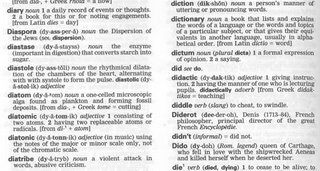"Deef"-initely a WWWednesday...
It's been a whole week since the last WWWednesday post (duh), so let's get right to work. First, I'd like to relay two humorous stories from the past week - mainly so I will never forget them - which involve my friend Steve (aka 'Deef').
 1) Linking to Tim Challies seems the be the sure-fire way to get him to appear, as evidenced by last week's post. I had a chance to exchange a couple emails with Tim in which the following happened:
1) Linking to Tim Challies seems the be the sure-fire way to get him to appear, as evidenced by last week's post. I had a chance to exchange a couple emails with Tim in which the following happened:
2) Thankfully, Steve has a good sense of humor and sharp wit which was evidenced the next day in a couple emails. Early in my series on the charismata, the UK's Adrian Warnock stopped by and left a comment. Many of you already know that Adrian's exchange with Dan Phillips over at TeamPyro was one of the catalysts for my posts.
Noting that Adrian might link here, Steve and I had the following exchange:
 I missed the allusion at first, so the image of a Pyromaniac chasing me with a frozen, value-pack sized lump of hamburger just tickled me silly.
I missed the allusion at first, so the image of a Pyromaniac chasing me with a frozen, value-pack sized lump of hamburger just tickled me silly.
Ok... Moving on.
3) Al Mohler, as always, posts some spot-on thoughts re: the VeggieTales controversy. UPDATE: For first-hand perspectives, check out Phil Vischer's blog on the matter.
 4) I was looking for an article on election/sovereignty to forward to a friend. I browsed through the Center for Reformed Theology and Apologetics (CRTA) website. Immediately, it was confirmed to me why Google Ads are just a bad idea. Click the image to get a full-size version and see what I mean.
4) I was looking for an article on election/sovereignty to forward to a friend. I browsed through the Center for Reformed Theology and Apologetics (CRTA) website. Immediately, it was confirmed to me why Google Ads are just a bad idea. Click the image to get a full-size version and see what I mean.
I shudder to think what Google would advertise on this page given my freaky postings...
5) Speaking of Al Mohler and election, the audio for Dr. Mohler's Calvinism 'debate' with Paige Patterson has been posted online. It's worth a listen!
6) The other night, I came across what I think might possibly be the greate st human train wreck ever: The Flavor of Love (now in season 2). The premise is reality TV gold, sadly... Flava Flav auditions 20+ women, who certainly are filled with the greatest of affection for him, and selects one to be his main squeeze. In the newest episode, Flav has narrowed the field to three and decides it's time to meet the families. So, he flies the parents in to get to know them.
st human train wreck ever: The Flavor of Love (now in season 2). The premise is reality TV gold, sadly... Flava Flav auditions 20+ women, who certainly are filled with the greatest of affection for him, and selects one to be his main squeeze. In the newest episode, Flav has narrowed the field to three and decides it's time to meet the families. So, he flies the parents in to get to know them.
As a parent, I wonder if I must add to my nightly prayers that I will never receive a phone call informing me that my daughter is seeking to 'hook up' with Flava Flav and asking me to come and meet him.
The girls in the show are, well, 'void'. Check this out, for example...
All that said: The clock is still dope.
7) So, how did you get here? Perhaps it was by one of these 'less travelled roads':
 1) Linking to Tim Challies seems the be the sure-fire way to get him to appear, as evidenced by last week's post. I had a chance to exchange a couple emails with Tim in which the following happened:
1) Linking to Tim Challies seems the be the sure-fire way to get him to appear, as evidenced by last week's post. I had a chance to exchange a couple emails with Tim in which the following happened:- I told Tim I didn't expect people 'like him' [meaning Reformed, mega-bloggers] to be surfing to my [patheti-sad] blog.
- Tim quipped back to ask why I discriminated against Canadians.
- In an effort to dispel such rumors of Canuck persecution, I told Tim that I "already had one of those"... I meant that I already had a Canadian reader, namely Deef, and I linked to Steve's bio page thinking Tim would get a kick outta it.
- Seeing the picture of Steve and his wife, Challies thought I was implying that I married a Canadian... So he complimented me on my choice in women.
- I corrected Tim and later relayed the story to Steve. This is all particularly funny because I've already been accused of trying something sly with Steve's wife. Now the rumor's legs have grown long, indeed.
2) Thankfully, Steve has a good sense of humor and sharp wit which was evidenced the next day in a couple emails. Early in my series on the charismata, the UK's Adrian Warnock stopped by and left a comment. Many of you already know that Adrian's exchange with Dan Phillips over at TeamPyro was one of the catalysts for my posts.
Noting that Adrian might link here, Steve and I had the following exchange:
Steve: Who knows, you could get linked by Adrian as well, and *then* just think of wh.. well, maybe you don't want to think about that.
Me: Yeah, Dan Phillips will come after me with a [theological] pipe.
Steve:No, no, no. It would be a frozen ground beef chub from Costco.
 I missed the allusion at first, so the image of a Pyromaniac chasing me with a frozen, value-pack sized lump of hamburger just tickled me silly.
I missed the allusion at first, so the image of a Pyromaniac chasing me with a frozen, value-pack sized lump of hamburger just tickled me silly.Ok... Moving on.
3) Al Mohler, as always, posts some spot-on thoughts re: the VeggieTales controversy. UPDATE: For first-hand perspectives, check out Phil Vischer's blog on the matter.
 4) I was looking for an article on election/sovereignty to forward to a friend. I browsed through the Center for Reformed Theology and Apologetics (CRTA) website. Immediately, it was confirmed to me why Google Ads are just a bad idea. Click the image to get a full-size version and see what I mean.
4) I was looking for an article on election/sovereignty to forward to a friend. I browsed through the Center for Reformed Theology and Apologetics (CRTA) website. Immediately, it was confirmed to me why Google Ads are just a bad idea. Click the image to get a full-size version and see what I mean.I shudder to think what Google would advertise on this page given my freaky postings...
5) Speaking of Al Mohler and election, the audio for Dr. Mohler's Calvinism 'debate' with Paige Patterson has been posted online. It's worth a listen!
6) The other night, I came across what I think might possibly be the greate
 st human train wreck ever: The Flavor of Love (now in season 2). The premise is reality TV gold, sadly... Flava Flav auditions 20+ women, who certainly are filled with the greatest of affection for him, and selects one to be his main squeeze. In the newest episode, Flav has narrowed the field to three and decides it's time to meet the families. So, he flies the parents in to get to know them.
st human train wreck ever: The Flavor of Love (now in season 2). The premise is reality TV gold, sadly... Flava Flav auditions 20+ women, who certainly are filled with the greatest of affection for him, and selects one to be his main squeeze. In the newest episode, Flav has narrowed the field to three and decides it's time to meet the families. So, he flies the parents in to get to know them.As a parent, I wonder if I must add to my nightly prayers that I will never receive a phone call informing me that my daughter is seeking to 'hook up' with Flava Flav and asking me to come and meet him.
The girls in the show are, well, 'void'. Check this out, for example...
All that said: The clock is still dope.
7) So, how did you get here? Perhaps it was by one of these 'less travelled roads':
- I am the place to go if you're digging for info on Whitney Houston Gretest(sic) Love of All free.
- Unfortunately, 3 people have come looking for George Mallet nude. I must admit that I only just figured out who George Mallet is, and I have no interest in anything having to do with his nudity.
- Someone was looking for world wide janet pierce 2006 email address on Yahoo. I wonder if this is who they were looking for? Or maybe her, or her, or maybe her.
- It seems that those offensive Duggars on TLC have been causing a ruckus again!
Labels: WWWednesday



























